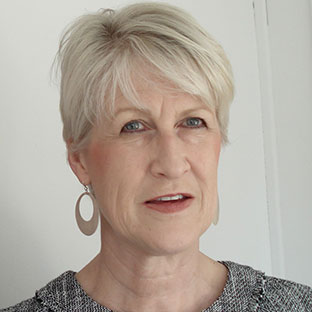For many decades our capitalist system has been based on the idea of business being about maximising shareholder value. Trudy Worth FRSA argues for a new kind of shareholder that prioritises a corporation’s values and wider impacts on the world.
Value is what shareholders expect, in fact demand, for their investment. There is the additional expectation that the value of their investment will keep on growing. The other ‘actors’ in this scenario – the employees and customers – could simply be seen as components in the system, or cogs in the machine, that is built to keep pumping out returns for shareholders.
This is a bleak view of a model that has largely served us well and fuelled humanity’s progress on many levels. Yet, increasingly, we can see flaws in the system, among them the unhelpful behaviours it can prompt in pursuit, even worship, of profit to satisfy shareholder appetite. This has contributed to the creation of ‘haves’ and ‘have nots’ in our world leading to a disturbing level of inequality of income and living conditions. In 2017, the world’s richest 1% owned half the world’s wealth according to Credit Suisse’s wealth report. Comparative figures from America’s Economic Policy Institute show that chief executives in the top 350 US companies earned, on average, 312 times more than their employees in 2017. In 1965 the ratio was 20 to one and had risen to 58 to one in 1989.
For an even starker example, consider the differences in Apple, the world’s first trillion-dollar company. CEO Tim Cook made $102m last year, a mix of basic salary plus cash and shares bonus. Compare this with the average pay of a worker assembling iPhones in China. In 2016 this was reported to be around $650 to $850 a month. So, to buy the product workers would need to spend a whole month’s wages. Recently we have seen how shareholders can have some impact with the CEO of house-builder Persimmon having his bonus reduced from £102m to £75m because of shareholder objections (even though they agreed the original scheme and ‘reduced’ amount was still enormous compared to what ordinary employees will be earning).
These kinds of examples suggest we have got this wrong. That the system is out of balance as shareholder demand for returns overrides the needs of all other stakeholders; not just employees, but customers, suppliers and wider society.
Shouldn’t shareholders be more sensitive to the impact of their appetite? The RSA’s Tomorrow’s Investor report highlights an interesting tension in identifying that ordinary savers own over 40% of the UK stock market via institutional investors managing their pensions, endowments and other long-term savings. It says these savers are disengaged from their investments, more particularly from the way they are managed. Prioritisation of short-term profit by institutions is at odds with the long-term, stable growth aspirations of ordinary shareholders who are interested in the absolute return.
The debate between short and long-term focus and wider indicators of value is showing up elsewhere though. Some organisations have started to switch to longer-term horizons in their financial reporting. Unilever, and CEO Paul Polman, have held the line on scrapping quarterly reporting cycles and setting tough targets for the company’s operations to enable them to balance long-term profitability with increasing sustainability. Indra Nooyi, who stepped down as PepsiCo Chair and CEO in October 2018 after 12 years at the helm, spoke with some feeling at this year’s World Economic Forum about the need for long-term focus and generating profit in the right way – environmentally sustainable, treating people well – and the challenges of getting shareholders to support that.
We are beginning to see the glimmerings of a sea change. It is vital this gathers momentum and sticks. Our world is beset by seemingly intractable and pernicious problems, most, if not all, of which we have manufactured ourselves. Solving these will not just be the work of governments. Businesses – some of which have a societal reach and impact as great as government – have a massive role to play. And, of course, smaller businesses are not immune and can have a disproportionate impact on the lives of employees (and their families) given how much time is spent at work.
This opportunity for impact comes with responsibility and the bigger the footprint the bigger that responsibility is. The answer is not about refreshing CSR policies or bolt-on philanthropy but about leadership and action in the world that is focused on the greater good and baked into the organisational DNA in its stated and, more importantly, lived purpose.
This brings us back to shareholder value. A brave new world would be one that focused on stakeholders and on maximising value for all stakeholders: employees, customers, suppliers, distributors, investors and wider society. This is hardly a new idea. The economist and writer Will Hutton spoke about stakeholder value in his book The State We’re In (1995) as did Collins and Porras in Built to Last (1994) with their focus on organisational purpose, long-term commitment and workforce engagement. But we are still not really focusing on stakeholders.
If organisations embraced balanced stakeholder principles rather than old style shareholder principles it would prioritise the long term rather than the ‘quick buck’ and ever-growing returns and it would also focus on doing the right thing by all stakeholder groups. Alongside this we need a new breed of shareholder (and, of course, there are some already) who would be invested in the organisation’s purpose, the way it operates, its ethics, its positive impact on humanity. Return on investment should be the least motivating factor in this new ‘contract’.
Likewise, businesses should be looking to attract the right kind of shareholder; those invested in purpose and vision in a way that holds leaders and managers to account on the multiple factors that constitute value. That means creating a broader definition of value, a huge part of which needs to be value to the greater good. It can happen. When shareholders told Jim Sinegal, the now retired founder and CEO of CostCo, that though they loved the business, they wanted him, as the leader of a public company, to increase margins and give less to staff, his response was: “I have three words for you. Sell your stock.”
It was courageous act and one that perhaps shows the way, setting a standard for shareholders that value is about more than short-term financial returns. Organisations have spent many years and invested many thousands of hours and funds searching for the silver bullet of employee engagement, the thing that gets people fully invested in their work and the organisation to support ever greater performance. Isn’t it time we asked shareholders to be with us fully in the endeavour rather than lending conditional support and potentially diametrically opposed aims?
Beginning her career start in journalism, Trudy spent many years working in PR and corporate communication consultancy helping leaders develop the skills and capabilities to build organisations that can thrive and contribute to the greater good.
Related articles
-
Why the future of work needs 'impact entrepreneurs'
Rowan Conway
Rowan Conway shares insights from work with ALT/Now and Mastercard Center for Inclusive Growth on supporting impact entrepreneurs to tackle economic insecurity.
-
How to ensure a future of good work in retail
Fabian Wallace-Stephens
Fabian Wallace-Stephens shares key takeaways from the RSA's work with retailers and policy makers to design solutions needed to meet existing and future challenges for the retail sector.
-
Why economic insecurity matters
Rob Hartley
Rob Hartley, co-founder of Dinghy, describes the growing problem of economic insecurity and how industries need to respond.




Be the first to write a comment
Comments
Please login to post a comment or reply
Don't have an account? Click here to register.